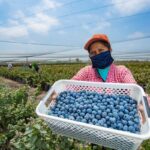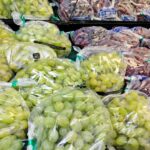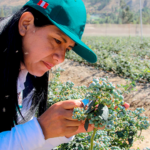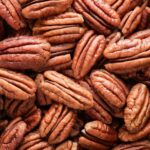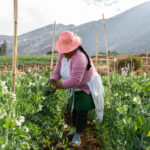New president of ProHass: 'The Peruvian avocado industry has become an important player internationally'

Peru is currently the second-largest exporter of avocados in the world, finishing 2024 with nearly 550,000 tons. Given its importance to the country and the world, Freshfruitportal.com spoke with the new president of ProHass, José Antonio Castro, who stated, "It is a great responsibility, a challenge, but at the same time, it will be a professional contribution to the avocado industry and the avocado sector in Peru in general."
Castro noted that ProHass will celebrate its 25th anniversary in 2024, during which it "has been the leading institution and a reference for the Peruvian avocado industry, nationally and internationally."
According to the latest official census, Peru has 76,000 hectares of Hass avocado plantations, involving 28,000 producers—27,000 of whom have less than 10 hectares. "For this and many other reasons, it is a great responsibility to take on the leadership of ProHass," he said.
José Antonio Castro has an extensive history in the industry, starting with the first plantations in 2003 and later serving as a director of ProHass in 2006.
"I have had the opportunity to be very close to the growth and stages of this crop in Peru, as well as to all the activities and efforts that ProHass has carried out year after year for the benefit of its members and the avocado industry in the country in general," he shared.
Regarding the industry's current state, he described it as a leading sector in terms of hectares planted, tons exported, foreign exchange generated for the country, and employment opportunities created for families.
"On an international level, the Peruvian avocado industry has become an important player. Today, it reaches 69 countries and leads the European market with a 41% share," Castro emphasized.
During his tenure, Castro aims to expand ProHass's representation within the Peruvian avocado export sector while optimizing members' contributions and fees.
"I want to consolidate ProHass as the leading and reference institution for Peruvian avocados nationally and internationally. I also aim to spread the need to work together for the sustainability of our industry among all stakeholders," he explained.
Challenges for Peruvian Avocados
Despite its strong global position, Castro acknowledged that challenges persist for the Peruvian avocado industry.
"The main challenges are production costs, sanitary pressures, and restrictions on using products to control pests and diseases," he said.
He added, "We cannot overlook the challenge that the climate impact has on the behavior and productivity of the fields. There are also shipping rates, international logistical limitations, and the entry of new producing origins. A significant challenge is the concentration of our supply during certain weeks of the year, which negatively impacts prices."
Opportunities and Added Value
Castro highlighted the industry's opportunities, pointing out that many markets still have low per capita avocado consumption. Proper availability, quality, and promotion could increase demand in these markets.
ProHass is collaborating with Senasa and the Peruvian government to open new markets, including Mexico, Vietnam, Thailand, the Philippines, Australia, and New Zealand.
Beyond fresh exports, the Peruvian avocado industry is also developing products such as frozen avocados, pastes, vacuum-packed products, and avocado oil.
For example, Castro mentioned a recent trade agreement between Peru and China to export frozen avocados to the Asian market. "We believe this trade agreement will provide a new alternative for avocado exports that do not always meet the requirements for fresh fruit," he said.
Global Avocado Suppliers
Castro also discussed Peru’s position relative to other producing countries: "In the case of Chile, for Peru, it is more of a strategic market than a competitor, as the seasons of both origins are complementary. Today, Chile is Peruvian avocados' third most important destination, after Europe and the United States."
He noted that Colombia’s production seasons overlap with Peru’s, while California competes during the same season for the U.S. market. "Mexico has an extensive origin and a year-round presence in the North American market. It is the undisputed leader," he added.
Message to the Sector
When asked about profitability, Castro emphasized the need to focus on "productivity, exportable costs, and optimizing the size distribution."
He also highlighted the importance of sustainability: "The first component any company or producer needs is economic sustainability," he said.
Without promotion, he explained, achieving economic sustainability would become more challenging, which would affect investments in other aspects of sustainability.
"It is essential to invest in promoting the benefits, versatility, and availability of Hass avocados in as many markets as possible, with the potential to increase per capita consumption," Castro concluded.

















